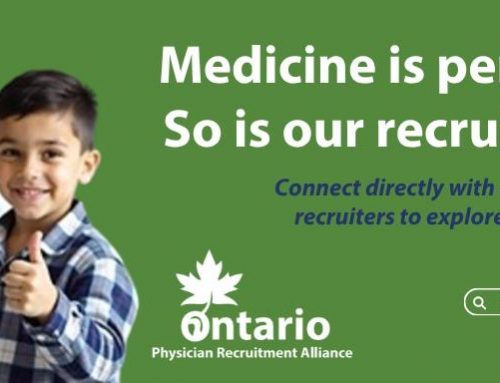FOR IMMEDIATE RELEASE
The Ontario Physician Recruitment Alliance (OPRA) is deeply concerned about the Government of Ontario’s new eligibility policy for international medical graduates (IMGs) applying to the 2026 R-1 CaRMS residency match.
Beginning in 2026, IMGs must have completed two years of Ontario high school to be eligible for designated IMG residency positions in the first iteration of the match. Those who do not meet this requirement will be barred from consideration until the second iteration. This exclusionary requirement raises serious human rights and equity concerns, not to mention this change appears to go against its own government’s IPCAT goals.
At a time when Ontarians face a critical lack of access and attachment to family doctors , implementing barriers that restrict pathways for skilled IMGs is counterproductive and harmful to our healthcare system. In 2025 there were 276 family medicine residency spots unfilled, 96 of those in Ontario.
This kind of mid-cycle gatekeeping demands answers:
- Why now? What evidence shows that adding a high school requirement will strengthen access and attachment to a primary care physician?
- How will this impact recruitment? Many qualified IMGs, who are Canadian citizens or permanent residents, will be excluded from the most competitive round of matching. Their options will be to go to other provinces. Or will look (or will be lost to) to the US residency match before the 2ndround.
- What are the unintended consequences? Delaying access to training for IMGs risks widening the gap between community needs and physician supply, especially in under serviced areas.
- Family Medicine IMGs are required to complete a five-year return-of-service in Ontario, a policy intended to strengthen access to care in communities that need it most. This commitment to community-based practice stands in contrast to current trends, where many Canadian Medical Graduates are drawn to more lucrative, hospital-based roles—leaving primary care gaps that IMGs are increasingly helping to fill.
Our communities cannot afford additional barriers when we are in need of at least 3,500 family doctors in comprehensive medicine to care for the estimated 4 million residents without a family doctor.
We stand firmly behind our IMGs, who bring essential experience, diversity, and commitment to our health system. We call on the Ministry of Health and our medical education partners to revoke this discriminatory policy immediately.
This change will have long-term effect on physician recruitment in our province.






